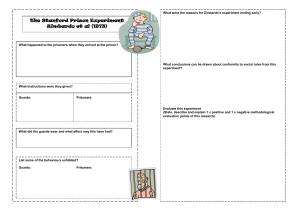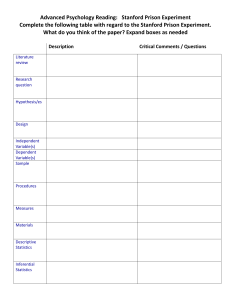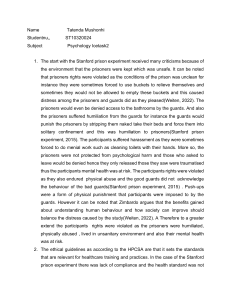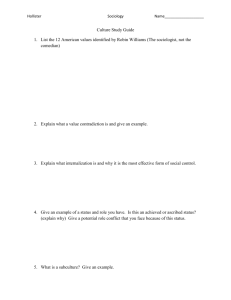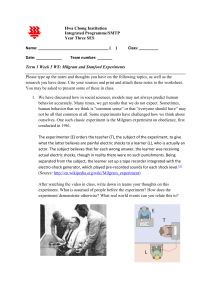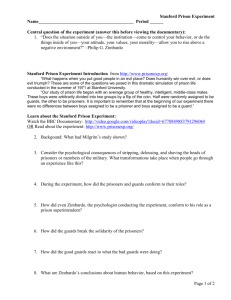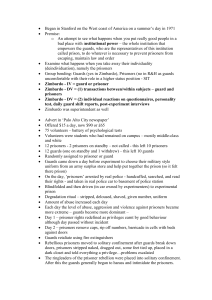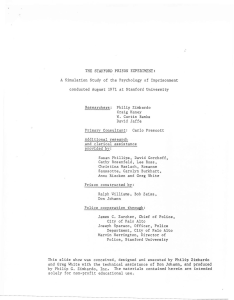Brandt Schafer Applied Ethics Dr. Donahue 5 November 2013
advertisement
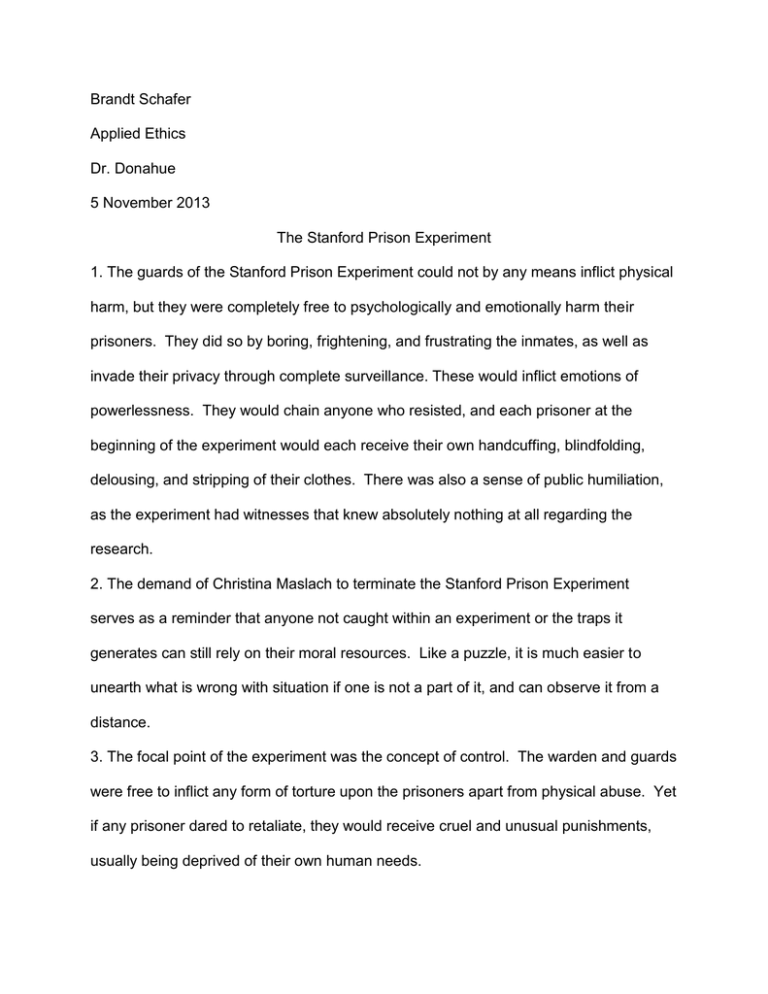
Brandt Schafer Applied Ethics Dr. Donahue 5 November 2013 The Stanford Prison Experiment 1. The guards of the Stanford Prison Experiment could not by any means inflict physical harm, but they were completely free to psychologically and emotionally harm their prisoners. They did so by boring, frightening, and frustrating the inmates, as well as invade their privacy through complete surveillance. These would inflict emotions of powerlessness. They would chain anyone who resisted, and each prisoner at the beginning of the experiment would each receive their own handcuffing, blindfolding, delousing, and stripping of their clothes. There was also a sense of public humiliation, as the experiment had witnesses that knew absolutely nothing at all regarding the research. 2. The demand of Christina Maslach to terminate the Stanford Prison Experiment serves as a reminder that anyone not caught within an experiment or the traps it generates can still rely on their moral resources. Like a puzzle, it is much easier to unearth what is wrong with situation if one is not a part of it, and can observe it from a distance. 3. The focal point of the experiment was the concept of control. The warden and guards were free to inflict any form of torture upon the prisoners apart from physical abuse. Yet if any prisoner dared to retaliate, they would receive cruel and unusual punishments, usually being deprived of their own human needs. 4. The very concept of a warden and his prisoner contradicts the Golden Rule, as the prisoners are unable to return their grievances. Furthermore, it is against their duty for the guards to display sympathy or mercy onto their convicts. Much like caged animals they possessed more rights than rocks, but less rights than humans, and should be treated as such (even in the context of role-playing, disturbingly enough). 5. The Stanford Prison Experiment shows both its viewers and its participants that the line between reality and fantasy often blurs far more easily than expected. It is a gradual transition, rather than as simple and abrupt as a light switch. Confinement is a psychological manipulation that is far more powerful than what people give it credit for normally. Upon experiencing the tribal trap, any just hardworking man or woman can exude words or actions that he or she had no idea that he or she could hold responsibility for.
